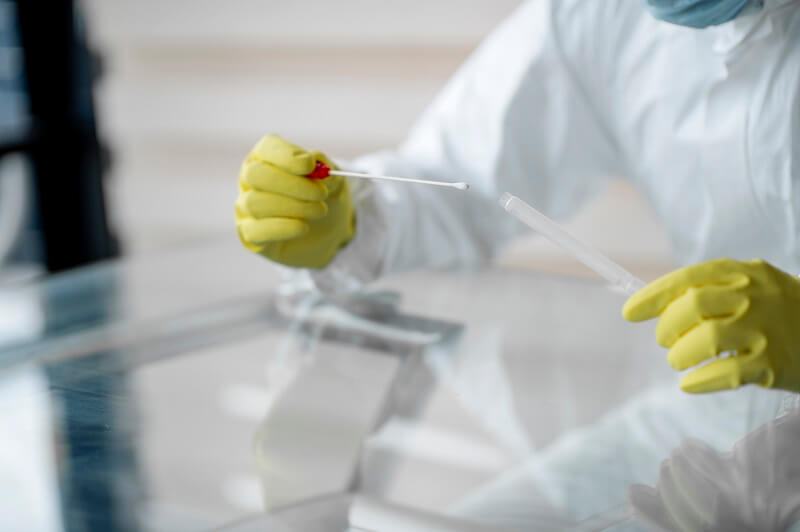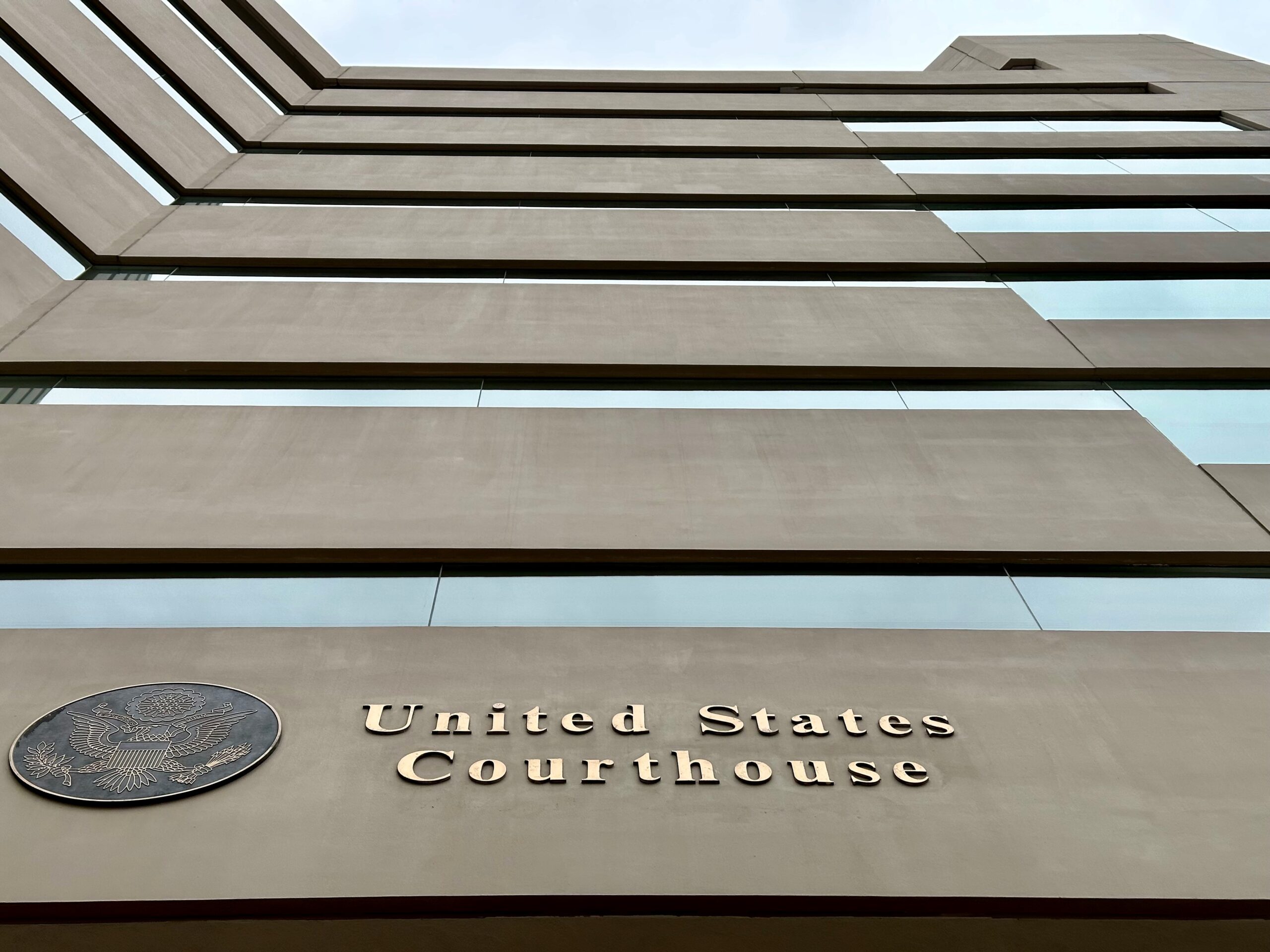Auditor: More than $190 Million in Pandemic-Related Purchases Lacked Appropriate Records

Maryland auditors found $190 million in pandemic-related emergency purchases by state agencies that lacked appropriate record-keeping and documentation, a new report released Thursday shows.
State agencies made 848 emergency procurements related to the COVID-19 pandemic totaling approximately $1.7 billion across 19 state agencies between March 2020 and May 2021, according to Legislative Auditor Gregory Hook.
Upon reviewing 15 of the pandemic-related emergency procurements, the Office of Legislative Audits concluded that 11, totaling $189.4 million, were not obtained in accordance with state law — and three of them didn’t have formal written contracts.
The audit also concluded that:
- Seven emergency procurements, valued at $133.7 million, were not appropriately documented or monitored;
- Agencies lacked documentation showing that the state received the services paid for under four emergency procurements valued at $25.5 million;
- The state also lacked proof that all of the items paid for under two emergency procurements totaling $3.3 million were received; and
- Ventilators from one emergency procurement valued at $1.7 million weren’t in working order when auditors conducted their review.
According to the report, most of the personal protective equipment (PPE) purchased lacked documentation to prove it had been inspected, including 12 ventilators valued at $456,000. Forty-six other ventilators purchased from the same vendor were not operational, auditors wrote.
Additionally, auditors reported that Maryland Department of Health was not reliably or accurately tracking inventory received through these emergency procurements.
“Due to the volume of PPE items purchased, MDH was not able to inspect every item,” Webster Ye, the assistant secretary of health policy for the agency, wrote in response to the audit. “MDH’s focus was on efficient receipt, storage, and transportation of PPE to ensure that lifesaving personal protective equipment was distributed to healthcare providers, first responders, and other front-line workers in a timely manner.”
In response to the auditors’ report, the Department of General Services said that assistant attorneys general within the agency approved letters of intent as an appropriate stand-in for contracts.
The department also defended its choice of vendors by stating that the state of emergency left “quite literally every country, and every state/province/county/city government in the world” scrambling to secure finite supplies, leading them to purchase whatever was presented to them.
“When PPE and ventilators were found, it was a race to put them under contract,” Eric T. Lomboy, the chief of staff for the Department of General Services, wrote. “Essentially, the choice made in that moment — given the facts and circumstances at that point in time — was that due to the overwhelming demand for the limited supply of these critical supplies, the normal concept of competition was not of paramount importance.”
Blue Flame
According to the audit report, Maryland entered into a $12.5 million contract on April 1, 2020, with a fledgling company, Blue Flame Medical, which struggled to fill the state’s order for N95 masks and ventilators.
The state’s top federal lobbyist was a key figure in the decision to enter into the contract with the politically connected firm, which promised delivery of a massive cache of equipment within 10 days because of its direct relationship to a Chinese manufacturing company.
No competing manufacturers were identified by the Department of General Services, which made the purchase on behalf of the health department.
The department purchased 1,550,000 N95 masks and 110 ventilators for $12,542,000 — about half of which was paid upfront as a deposit.
The Department of General Services tried to cancel the order and recover the deposit in early May after the company neglected to deliver any of the purchased items. In October, the state settled with Blue Flame to allow the company to keep the deposit as payment for 1,550,000 N95 masks and 37 ventilators that were provided.
According to the audit report, Blue Flame has removed ventilators from its website for purchase.
LabGenomics
In April 2020, Gov. Lawrence J. Hogan Jr. (R) and first lady Yumi Hogan secured 500,000 test kits from South Korean company LabGenomics.
But all of those test kits were quietly sent back and replaced with a second order of tests for an additional $2.5 million.
According to an audit report released by the Office of Legislative Audits in April 2021, both batches of tests, including shipping fees, cost the state $11,978,634.
The new audit found that 92% of the 500,000 LabGenomics tests that Hogan secured from South Korea were used. The remaining tests were likely used for other purposes including validation control and test controls, auditors wrote.
However, an extended review of the LabGenomics tests found their reliability questionable, with specific concerns about erroneous false positive results, according to auditors.
Of 66 people tested with the LabGenomics procurement, 42 were retested within two to six days. More than half of those patients presented negatively on their second test. However, auditors were unable to determine if the inconsistency in the results was because of the quality of the tests or a different contributing factor.
‘A complete circus’
Legislators said Thursday that the auditors’ findings reinforced longstanding concerns about the administration’s apparent willingness to throw procurement rules out the window.
“It was an abomination then and it’s an abomination now,” said Sen. Paul G. Pinsky (D-Prince George’s), the chairman of a Senate panel that held hearings on the state’s purchasing practices in 2020. “It’s just sort of emblematic of the administration.”
“We were aghast when they bought these masks untested, untried, untrue, and without any kind of vetting,” he added.
Del. Carol L. Krimm (D-Frederick), the House chair of the Joint Audit and Evaluation Committee, said the legislature and the public understand the challenges the administration faced procuring goods and services in an emergency.
“But we still have rules for emergency procurements,” she said. “These are still taxpayer funds that we have to monitor and be sure that they’re being spent appropriately. And the auditors found that in many cases that wasn’t true.”
Hogan spokesman Michael Ricci called the newly released report “mostly a rehash” of previously known details.
“But it is another opportunity to commend the men and women who worked around the clock to find life-saving tests, masks, gowns, and equipment in the middle of a global emergency,” he said in a statement.
In the audit response and in earlier comments, the administration has defended the emergency purchases as necessary to save lives amid a frenzied procurement environment.
Sen. Clarence K. Lam (D-Howard), the Senate chair of the joint audit committee, disputed that response, calling it “really disappointing to see how badly these emergency procurements and contracts were mismanaged.”
“To hide behind the fact that there’s a pandemic going on is not a valid excuse,” Lam said. “Some of this is pretty egregious — lack of documentation, lack of forethought, lack of vetting of vendors, lack of follow-up to make sure these products were actually received. It’s a complete circus.”





 Creative Commons Attribution
Creative Commons Attribution